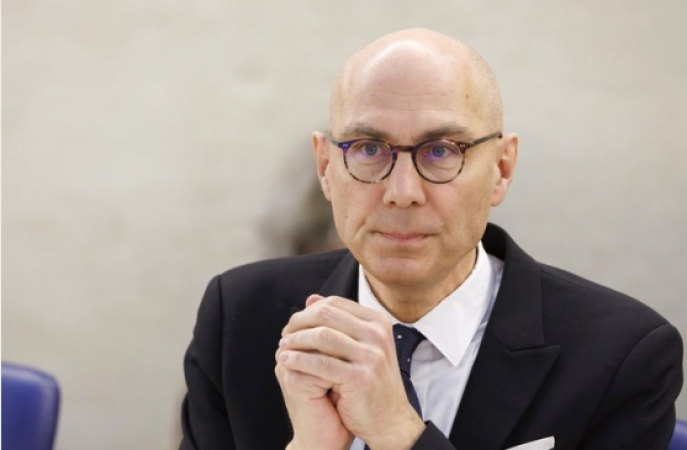
New York City: The head of the UN's human rights office expressed on Tuesday that he was "immensely sympathetic" to the many people who are outraged by acts that go against "their deepest values and beliefs."
According to Volker Turk, recent incidents involving the burning of the Qur'an and other similar acts appear to have been manufactured to incite resentment, sow discord, and convert ideological differences into hatred and violence.
At the 53rd session of the Human Rights Council in Geneva, he was giving a speech during a pressing discussion on "the alarming rise in premeditated and public acts of religious hatred as manifested by recurrent desecration of the Holy Qur'an in some European and other countries."
Also Read: Israeli Parliament Approves Contentious Bill Limiting Supreme Court Powers
The burning of the Qur'an outside a mosque in Stockholm during the Eid Al-Adha holiday last month, which sparked outrage throughout the Muslim world and widespread condemnation, served as the impetus for the discussion.
Turk, the UN's high commissioner for human rights, said that humans communicate through symbols rather than words. "A ring symbolises our promise to wed. We are told to stop or move on by a coloured light.
"Religious symbols have a deeper meaning. For some, symbols like a crescent, a star, a cross, and a seated person may not have much meaning. However, they hold great significance for many people as the repository and embodiment of a vast history, a vast system of values, a basis for a sense of community and belonging, and the very essence of their identity and fundamental beliefs.
Also Read: Australian Family's Trip to Fiji costs a lot to their Girl
Political and religious leaders must condemn all desecrations of holy sites and symbols in order to prevent religiously offensive behaviours, he continued.
Additionally, they must make it clear that prior provocation, whether real or imagined, cannot be used to excuse violence, Turk added.
However, he added, "an act of speech, in the specific circumstances in which it occurs, can constitute incitement on the part of others to action on their part — in some cases, very violent and discriminatory action."
Citing international law's guiding principles, he declared that states must forbid "any advocacy of national, racial, or religious hatred that constitutes incitement to discrimination, hostility, or violence."
Nevertheless, he went on to say that "any national restrictions to the overriding right to freedom of opinion and expression must be formulated so that their sole purpose and outcome is to protect individuals, rather than to shield religious doctrine from critical review."
In addition, Turk emphasised the significance of efforts to combat hate speech, saying that it "needs to be actively countered by all responsible authorities, figures of influence, and the private sector."
Also Read: Rheinmetall Unveils Bold Move: Tanks Roll into Ukraine with New Armored Vehicle Plant
He pleaded with governments to step up their efforts to put the UN action plan for battling intolerance based on religion or beliefs into action.
He stated that "many societies are struggling with this political weaponization of religious differences."
"We must not allow ourselves to be snared and used by these dealers in chaos for political gain, these provocateurs who consciously try to split us apart."